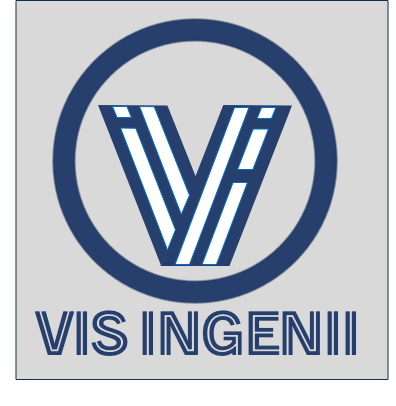
EVERYTHING IS COVERED.
Discover Vis Ingenii's extensive engineering expertise, offering a spectrum of services from civil works and mechanical design to advanced plant engineering and electrical solutions, all tailored for industry excellence.
PROCESS ENGINEERING & PLANT DESIGN
Vis Ingenii specializes in a diverse array of engineering services, each tailored to meet the intricate demands of modern industry. PAGE UNDER CONSTRUCTION.
Pilot Plant Design
System Design and Implementation
Plant Design, Upgrade, and Optimization
Complex Projects Development
PILOT PLANT DESIGN
Pilot Plant Design refers to the design and construction of small-scale plants used to test and validate industrial processes before their full-scale implementation. These plants are essential for reducing operational risks and improving process quality and efficiency before transitioning to actual industrial production.
Advantages of Pilot Plant Design:
Reduced Risk: Testing a new process on a smaller scale reduces the risk of failure in a full-scale industrial plant.
Customization: Pilot plants allow customization of processes to meet the specific needs of the company or product.
Innovation: They encourage technological innovation, allowing companies to test new methods and develop innovative processes in a controlled environment.
The design of a pilot plant is crucial to the success of new industrial projects, allowing companies to test concepts and methods without the high costs and risks associated with immediately implementing a full-scale industrial plant.
Plants Design, Upgrade, and Optimization
Process engineering is a multidisciplinary science focused on the design, management, control, and optimization of chemical, physical, and biological processes. Utilizing state-of-the-art computational and simulation systems, it aims to streamline and enhance industrial operations. At the core of this field is the adaptation of each plant to meet the specific requirements of the client, while adhering to operational, design conditions, and rigorous safety standards set by regulatory norms.
Vis Ingenii excels in this domain with a range of services:
Analysis of material and energy balances: Assessing the input and output of resources to optimize efficiency and sustainability.
Generation of Process Flow Diagrams (PFDs): Creating detailed diagrams that map out the flow and interaction of process components.
Production of Process & Instrumentation Diagrams (P&IDs): Developing comprehensive diagrams that detail the instrumentation and control devices integrated into the process.
Calculation of control and safety valves: Ensuring optimal flow regulation and safety within the system.
Definition of Line Specifications: Establishing the criteria and standards for process lines to ensure optimal functionality.
Assignment of piping classes: Categorizing pipes based on their function, material, and other relevant criteria to streamline process operations.
These services are integral to optimizing plant performance, ensuring operational excellence, safety, and compliance with industry standards. Vis Ingenii approach is not just about meeting needs; it's about exceeding expectations and driving innovation in process engineering.
System Design and Implementation
All industrial plants, regardless of their complexity, are equipped with sophisticated automation and control systems. These systems allow operators to regulate and command processes efficiently and effectively. Adhering to the functional and operational criteria defined by the process, Vis Ingenii develops systems aligned with the latest technological standards, always upholding the required safety parameters.
Key activities undertaken by Vis Ingenii in this realm include:
Drafting Functional Specifications for Automation/Control Systems: Detailing the operational requirements and objectives of the automation systems to ensure they meet the process needs.
Developing Cause and Effect Tables: Analyzing and documenting the relationships between different operational scenarios and their respective effects on the system.
Compiling Input/Output (I/O) Lists: Cataloging all the inputs and outputs associated with the control systems, essential for understanding system interactions.
Issuing Loop Diagrams: Creating detailed diagrams that illustrate the feedback loops within control systems, essential for troubleshooting and system optimization.
Developing Automation and Regulatory Logic Schemes: Designing the logical frameworks that underpin the automation and control systems, ensuring efficient and accurate process regulation.
Drafting Technical Purchase Specifications: Preparing detailed requirements for the procurement of automation and control equipment, ensuring compatibility and quality.
Vis Ingenii’s approach to automation and control engineering prioritizes efficiency, safety, and technological advancement. Our expertise ensures that industrial plants are not only equipped with cutting-edge control systems but also operate with optimal precision and safety.
Complex Projects Development
Complex project development in the industrial field refers to the planning, design, execution, and management of large-scale, multifaceted projects that often involve intricate systems, multiple stakeholders, and challenging timelines. These projects may include the construction of factories, infrastructure projects, specialized machinery installations, or large-scale manufacturing facilities.
The complexity of these projects often stems from several factors:
Multidisciplinary Involvement: Complex projects require collaboration among various disciplines, such as civil, mechanical, electrical, and software engineering. Coordination between different teams is essential to ensure all aspects of the project align with the overall objectives.
Detailed Planning: Thorough planning is crucial to address the technical challenges, resource allocation, and schedule management. This phase includes risk assessments, feasibility studies, budgeting, and logistics planning.
Regulatory Compliance: Ensuring the project meets all local, national, and international standards, including environmental regulations, safety codes, and industry-specific guidelines.
Technology Integration: Implementing cutting-edge technologies, automation systems, or custom solutions that may require specialized expertise and ongoing testing.
Stakeholder Management: Managing communication between multiple stakeholders, such as clients, contractors, government entities, and suppliers, is vital to keep the project on track and meet the varied expectations.
Risk and Change Management: Due to the inherent uncertainty in complex projects, careful monitoring and flexibility are needed to mitigate risks and address unforeseen issues or changes in scope.
Successful complex project development requires robust project management, innovative engineering solutions, and a focus on efficiency, safety, and sustainability. With proper execution, these projects contribute significantly to the growth of industries, driving technological advancement and economic development.




